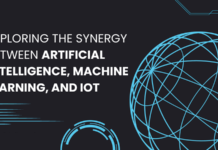Last year Sony announced the establishment of Sony AI, a research and development division with aims to develop AI products for gaming and beyond. But the PlayStation 5 will be launched in late 2020, and Sony has been filing several patents related to AI technology that could be used on the PS5 console.
Let’s take a look at some of these AI-based products Sony may be planning to use in the upcoming PlayStation 5 console.
Robotic AI companion
This one is a bit of a head-scratcher, but Sony also has a patent for a robotic AI companion that can sit next to players and seemingly share in their emotions. When a player shouts in excitement after beating a level, for example, the robot will cheer alongside them. However, the patent implies it won’t be limited to just games, as the robot can also be a companion during movies and television. Paper Io 2 on Crazy Games with your robot buddy, anyone?
According to the patent, “It is expected that the user’s affinity with the robot is increased and motivation for playing a game is enhanced by the robot viewing the gameplay next to the user and being pleased or sad together with the user. Further, regarding not only the game but also a movie, a television program, or the like, it is expected that the user may enjoy content more by viewing the content with the robot as compared to the case of viewing it alone.”
Nintendo had something similar in the 1980s with R.O.B (Robotic Operating Buddy) for the Nintendo Entertainment System, though it supported only two games, despite at one point being the main “selling point” of the NES console in stores.
Dynamic music
In the ‘Dynamic Music Creation in Gaming’ patent filed by Sony this past May, Sony’s engineers describe how machine learning can analyze the various ‘musical components’ such as rhythm, harmony, and melody, and map them to specific emotions. Musical scores can then be dynamically altered to trigger emotions in players throughout gameplay.
This technology will likely be limited to PS5 games for the time being, but we’re sure open-source AI researchers will figure out a way to implement dynamic music in io games.
While many games already include dynamic audio cues based on in-game events, the system Sony describes would be able to alter the tempo of a music composition based on the player’s heart-rate, for example, or subtly add soft instruments like harps and pianos to relax a tense player.
AI voice assistant for gamers
Sony was granted a patent by the WIPO (World Intellectual Property Organization) for an AI assistance built into a game console which would provide gamers with tips and strategy guides for a small fee. While Sony isn’t the first to develop AI assistance for gaming, since Google has already incorporated Google Assistance into the Google Stadia cloud gaming platform, Sony’s patent concept is the first to suggest charging a fee for the service.
Sony’s patent used concept artwork from games like God of War, showing how a player could ask the voice assistant for tips on beating a boss, for example. The assistant would then recommend strategies and items used by other players to beat the boss, including microtransaction items, based on game data.
The patent summarizes itself:
“In some embodiments, selection of various resources may require a form of payment, for example by using virtual currency or real money,” reads the patent description. “In some embodiments, the selection of various resources may be in the form known as a ‘micro-transaction,’ which deals with relatively small sums of real money.
There may be an in-game resource of the game environment that could aid the user in accomplishing the objective with the character. The in-game resource may be downloadable content (DLC), add-ons, upgrades, items, tips, strategy, communal data, etc. However, the user is not necessarily aware that such a resource exists.”
In other words, the voice assistance seems to be less about providing game strategies, which players can easily look up online, but to promote microtransaction game items. This is clarified a bit further in the patent. Another example is given where a player asks to travel to an in-game area in Destiny 2 that is part of DLC content, and the assistant will give the player the option to buy the DLC content.
We’re not sure how useful players will find this AI shopping assistant, but game companies like EA are likely thrilled with the prospects.








